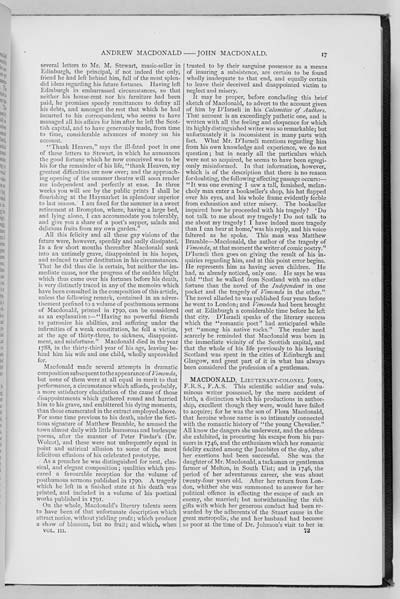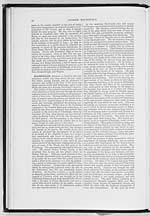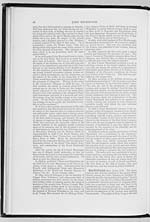17
several letters to Mr. M. Stewart, music-seller in
Edinburgh, the principal, if not indeed the only,
friend he had left behind him, full of the most splen-
did ideas regarding his future fortunes. Having left
Edinburgh in embarrassed circumstances, so that
neither his house-rent nor his furniture had been
paid, he promises speedy remittances to defray all
his debts, and amongst the rest that which he had
incurred to his correspondent, who seems to have
managed all his affairs for him after he left the Scot-
tish capital, and to have generously made, from time
to time, considerable advances of money on his
account.
"Thank Heaven," says the ill-fated poet in one
of these letters to Stewart, in which he announces
the good fortune which he now conceived was to be
his for the remainder of his life, "thank Heaven, my
greatest difficulties are now over; and the approach-
ing opening of the summer theatre will soon render
me independent and perfectly at ease. In three
weeks you will see by the public prints I shall be
flourishing at the Haymarket in splendour superior
to last season. I am fixed for the summer in a sweet
retirement at Brompton, where, having a large bed,
and lying alone, I can accommodate you tolerably,
and give you a share of a poet's supper, salads and
delicious fruits from my own garden."
All this felicity and all these gay visions of the
future were, however, speedily and sadly dissipated.
In a few short months thereafter Macdonald sunk
into an untimely grave, disappointed in his hopes,
and reduced to utter destitution in his circumstances.
That he did thus die is certain, but neither the im-
mediate cause, nor the progress of the sudden blight
which thus came over his fortunes before his death,
is very distinctly traced in any of the memoirs which
have been consulted in the composition of this article,
unless the following remark, contained in an adver-
tisement prefixed to a volume of posthumous sermons
of Macdonald, printed in 1790, can be considered
as an explanation:�"Having no powerful friends
to patronize his abilities, and suffering under the
infirmities of a weak constitution, he fell a victim,
at the age of thirty-three, to sickness, disappoint-
ment, and misfortune." Macdonald died in the year
1788, in the thirty-third year of his age, leaving be-
hind him his wife and one child, wholly unprovided
for.
Macdonald made several attempts in dramatic
composition subsequent to the appearance of Vimonda,
but none of them were at all equal in merit to that
performance, a circumstance which affords, probably,
a more satisfactory elucidation of the cause of those
disappointments which gathered round and hurried
him to his grave, and embittered his dying moments,
than those enumerated in the extract employed above.
For some time previous to his death, under the ficti-
tious signature of Matthew Bramble, he amused the
town almost daily with little humorous and burlesque
poems, after the manner of Peter Pindar's (Dr.
Wolcot), and these were not unfrequently equal in
point and satirical allusion to some of the most
felicitous effusions of his celebrated prototype.
As a preacher he was distinguished for neat, clas-
sical, and elegant composition; qualities which pro-
cured a favourable reception for the volume of
posthumous sermons published in 1790. A tragedy
which he left in a finished state at his death was
printed, and included in a volume of his poetical
works published in 1791.
On the whole, Macdonald's literary talents seem
to have been of that unfortunate description which
attract notice, without yielding profit; which produce
a show of blossom, but no fruit; and which, when
VOL. III.
trusted to by their sanguine possessor as a means
of insuring a subsistence, are certain to be found
wholly inadequate to that end, and equally certain
to leave their deceived and disappointed victim to
neglect and misery.
It may be proper, before concluding this brief
sketch of Macdonald, to advert to the account given
of him by D'Israeli in his Calamities of Authors.
That account is an exceedingly pathetic one, and is
written with all the feeling and eloquence for which
its highly distinguished writer was so remarkable; but
unfortunately it is inconsistent in many parts with
fact. What Mr. D'Israeli mentions regarding him.
from his own knowledge and experience, we do not
question; but in nearly all the particulars which
were not so acquired, he seems to have been egregi-
ously misinformed. In that information, however,
which is of the description that there is no reason
for doubting, the following affecting passage occurs:�
"It was one evening I saw a tall, famished, melan-
choly man enter a bookseller's shop, his hat flapped
over his eyes, and his whole frame evidently feeble
from exhaustion and utter misery. The bookseller
inquired how he proceeded with his tragedy? 'Do
not talk to me about my tragedy! Do not talk to
me about my tragedy! I have indeed more tragedy
than I can bear at home,' was his reply, and his voice
faltered as he spoke. This man was Matthew
Bramble�Macdonald, the author of the tragedy of
Vimonda, at that moment the writer of comic poetry."
D'Israeli then goes on giving the result of his in-
quiries regarding him, and at this point error begins.
He represents him as having seven children. He
had, as already noticed, only one. He says he was
told "that he walked from Scotland with no other
fortune than the novel of the Independent in one
pocket and the tragedy of Vimonda in the other."
The novel alluded to was published four years before
he went to London; and Vimonda had been brought
out at Edinburgh a considerable time before he left
that city. D'Israeli speaks of the literary success
which the "romantic poet" had anticipated while
yet "among his native rocks." The reader need
scarcely be reminded that Macdonald was born in
the immediate vicinity of the Scottish capital, and
that the whole of his life previously to his leaving
Scotland was spent in the cities of Edinburgh and
Glasgow, and great part of it in what has always
been considered the profession of a gentleman.
MACDONALD, LIEUTENANT-COLONEL JOHN,
F.R.S., F.A.S. This scientific soldier and volu-
minous writer possessed, by the mere accident of
birth, a distinction which his productions in author-
ship, excellent though they were, would have failed
to acquire; for he was the son of Flora Macdonald,
that heroine whose name is so intimately connected
with the romantic history of "the young Chevalier."
All know the dangers she underwent, and the address
she exhibited, in procuring his escape from his pur-
suers in 1746, and the enthusiasm which her romantic
fidelity excited among the Jacobites of the day, after
her exertions had been successful. She was the
daughter of Mr. Macdonald, a tacksman or gentleman
farmer of Melton, in South Uist; and in 1746, the
period of her adventurous career, she was about
twenty-four years old. After her return from Lon-
don, whither she was summoned to answer for her
political offence in effecting the escape of such an
enemy, she married; but notwithstanding the rich
gifts with which her generous conduct had been re-
warded by the adherents of the Stuart cause in the
great metropolis, she and her husband had become
so poor at the time of Dr. Johnson's visit to her in.
72

![]() Universal Viewer |
Universal Viewer | ![]() Mirador |
Large image | Transcription
Mirador |
Large image | Transcription
![]()

